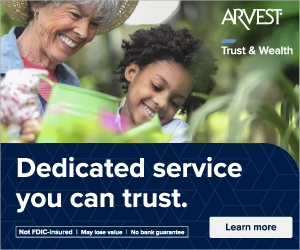As we imagine retirement throughout our lives, we may create a bucket list of dream-fulfilling desires and activities. Some revisit interests they did not have time to master during their working years, such as playing the piano, while some visit places that take their breath away, such as the Grand Canyon. To turn these dreams into reality we need a good financial assessment and management plan. However, even with extraordinary resources, the reality of retirement can bring its own problems that are not as fun to imagine.
One of the problems facing more Americans than ever before is the concept of being a “solo ager”—or person over 60 with little or no familial support. Those of us who have become caregivers for parents know how much time and energy is required to support them—and it can be significant. From physical tasks like providing rides to church, buying groceries, and monitoring medications, to emotional support such as phone calls and visits to abate loneliness. Some of those caregivers do not have a child to fill the same role for them, so they realize they will need to take a different route.
The good news is there is an increased awareness of the need for this type of support and more people are presenting potential solutions to the issue. In fact, earlier this year the office of the Inspector General put together a report, Partnering for Health: Potential Postal Service Roles in Health and Wellness, which outlined the potential for US mail carriers to provide healthcare and senior services. Both France and Japan’s postal services have had programs in place for over five years to check-in on the elderly for a monthly fee to family members. Since the pandemic hit, many other countries, such as Ireland and Belgium, have followed suit. Belgium’s service communicates with social services rather than family members to step in if necessary.
The number of solo agers approaching retirement is growing fast, and it is likely more private and public services will become available to address needs as they age. On the other hand, as the demand starts to exceed the supply, it is possible it will become harder and more expensive to find caregivers. Planning ahead and reserving a place with current institutions should be considered.
What Solo-agers can do now
Acknowledging your situation can help you get ahead of it, as there may be benefits to being a solo ager. Dr. Sara Zeff Geber, PhD—one of the nation’s leading experts on solo-aging—wrote an article this year, “Solo Agers: What senior living providers need to know”, in which she states:
“Solo Agers (women and men) tend to be more highly educated and to have made a good living over their lives, making them excellent candidates for higher-end senior living. Those who are child-free haven’t had to put children through college, buy them a car or bail them out of scrapes encountered as young adults.”
Although solo-agers may on average be better financially protected against the costs associated with nursing care, those costs are still rising. These costs can range from 50 thousand a year to well over one hundred thousand. Getting long-term-care insurance is one way to mitigate the risk that these costs could prevent you from getting the care you need when you need it.
Solo-Agers will still need legal and financial support structures, which can be built outside of immediate family ties. Dr. Geber also says –
“Solo Agers also need to arrange future legal guardianship for themselves—someone who will take over in a fiduciary capacity if they are unable to make decisions for themselves. That person may be a relative or a friend or even a professional fiduciary or private guardian. Yes, everyone needs the legal protection of a healthcare directive and an estate plan. But Solo Agers have a heightened need to have those protections in place while they are still relatively young and healthy since no adult child will rush in from the hinterlands to provide that assistance and guidance.”
One of the best professional fiduciaries to consider is a trust officer. A trust officer, such as those at Arvest Wealth Management, is required by law to abide by the fiduciary standard, which means they place their client’s interest above their own. One might consider the most popular type of trust, a revocable living trust, which allows the trust officer to start management for the trust right away and step in should the grantor become incapacitated. The grantor still has the ability to cancel the trust at any time.
Should you realize you might need the services someday but not wish to fund the trust yet, another consideration could be a standby trust. You would do the prep-work together with the trust officer, and then meet each year to check-in and see if the time has come to start funding the trust. If not, the trust will remain unfunded and inactive unless you become incapacitated and need the trust officer to jump in.
Creating support networks can become harder as we age, but it is by no means impossible. Beyond senior communities, which offer opportunities to meet others within your generation, one might consider joining organizations with multi-generational members. Volunteering for charitable organizations or mentoring provides a shared purpose and an opportunity to pass along experience, which can help the younger generation avoid critical mistakes in their own lives.
Solo agers are a growing group of people, so realize there are many others facing the same circumstances and many peers for you to connect with. Going solo does not mean going alone.
This content has been prepared by The Merrill Anderson Company and is intended as a general guideline.
© 2021 M.A. Co. All rights reserved.


